This is a guest blog post by Arctica Ambassador, Abby Duffy.
Have you ever been skiing in white out conditions? Maybe it was snowing really hard or the clouds were so low, you could barely see a skier in front of you until you were almost right on top of them? This can give you a small grasp of what it is like to ski blind. My name is Abby, and I am a blind ski racer. I am a high school sophomore from Concord, New Hampshire, and an aspiring Paralympian. I train at the National Ability Center (NAC) in Park City Utah, and race on my New Hampshire high school’s alpine ski team as well as attend national adaptive ski races. I was the first blind skier in New Hampshire history to score points in the Div 1 Alpine Ski finals.
Why I am blind
I have Leber Hereditary Optic Neuropathy (LHON) which is a type of inherited vision loss which is only passed down through females. I went blind when I was 6 years old. Over a period of about six months, I went from 20-20 vision to 20-400 – which is the same as I have today. I am not fully blind. All my vision is bad, but in a way I have “reverse tunnel vision” because my central vision is worse than my peripheral.
How a blind person can ski at all
I have always been athletic. When I was very young I could catch a ball and throw it back to my dad and I played soccer. My dad says I “moved with grace and had a mind for sports”. But that all changed when I went blind.
I learned to ski when I was nine, after doing a charity walk for a blind organization when my dad won a raffle for a trip for 2 to Loon Mountain. The prize included lift tickets, lessons, rentals, lodging, and meals. Thankfully, we were able to take an adaptive lesson with those tickets. On my first day of skiing [ever], my dad says I was a natural…and we went from the magic carpet to the lift. On the 2nd day we were already skiing top to bottom!
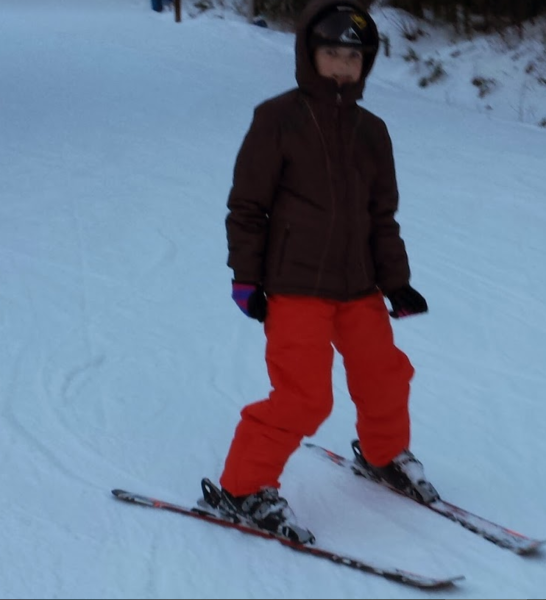
Abby Duffy age 9: First ski lesson
Skiing for a blind person
Because I am blind, I ski with my dad, Chris, as my guide. My dad skis in front of me and I follow him. We have headsets so that he can announce any obstacles that are out of the ordinary, terrain changes or when I need to turn if I need it. When we are racing, he announces more because I need to go fast, and not crash into the gates or miss them, so I need to know more. Because I can barely see skiers wearing just black or white, my guide wears bright colors. The bright colors make it so that I can see him better, so I can follow him better, and so I know that it is him and not another skier. When he used to wear more common/darker colored ski clothes, sometimes someone wearing the same thing would pass and that would be confusing.
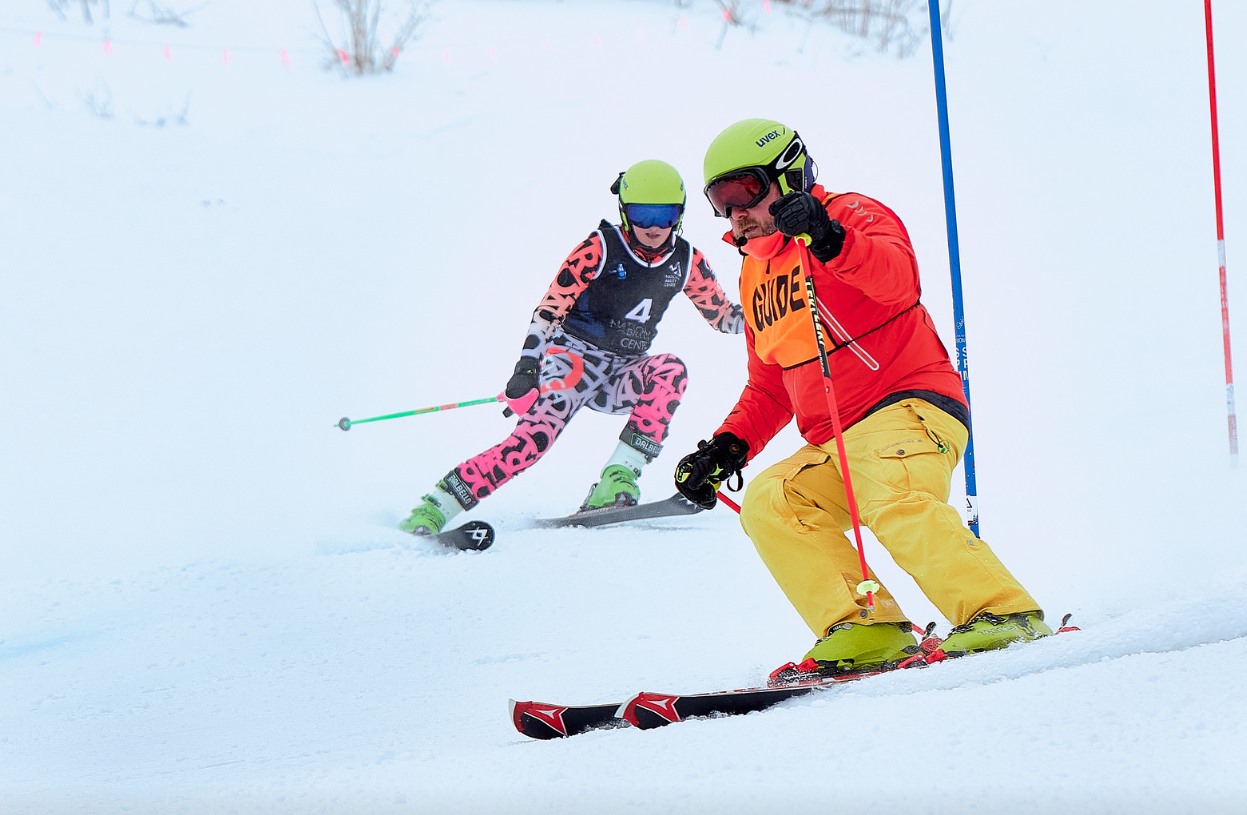
Abby racing with dad/guide leading the way
If I did not have a guide, I would not be able to ski at all. I am a very capable skier, but it would not be safe for me, and especially everyone else, if I did ski without a guide. Because I am a racer, I do ski very fast. Multiple times people have angrily come up to me and my dad saying that we should not be wearing vests that say “blind skier” and “guide” if I am not really blind. (But of course, I am blind!)
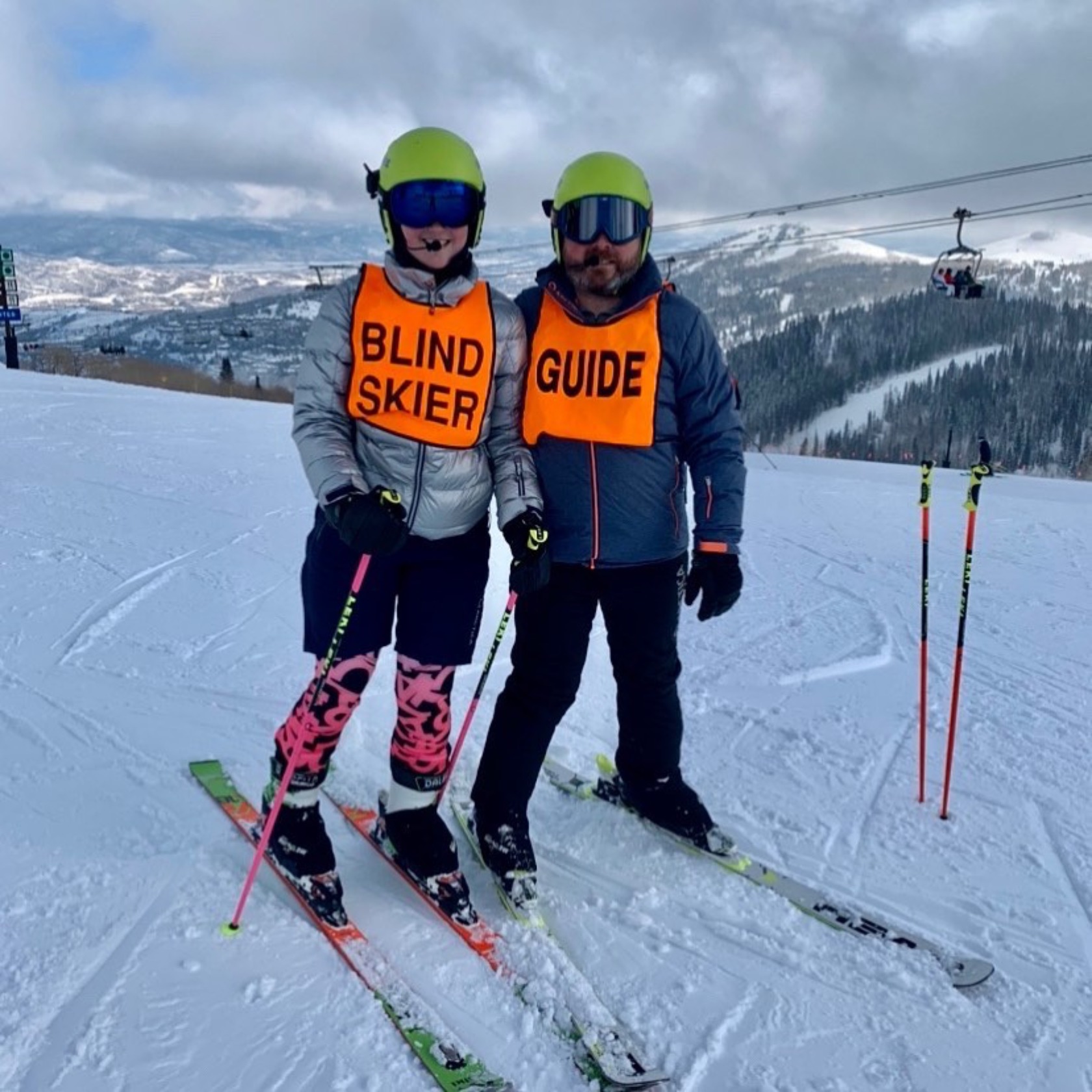
Abby and Chris Duffy in blind skier vests
Ski racing for a blind person
As an abled bodied skier, to learn how to ski race you just need to find nearly any mountain and sign up, but when you are disabled it is different. There are far fewer adaptive race teams and adaptive race coaches then there are for able bodied racers. There are only really 2 teams with racers at my level in America, the National Ability Center being one of them. This leads to athletes needing to travel farther to get good coaching. There are also less middle level races, if there are any. If you only raced adaptive races you would need to go from many races on green trails to national level races, so you basically need to race with abled boded people at some point as a disabled racer. This is not a bad thing it is just how it is.
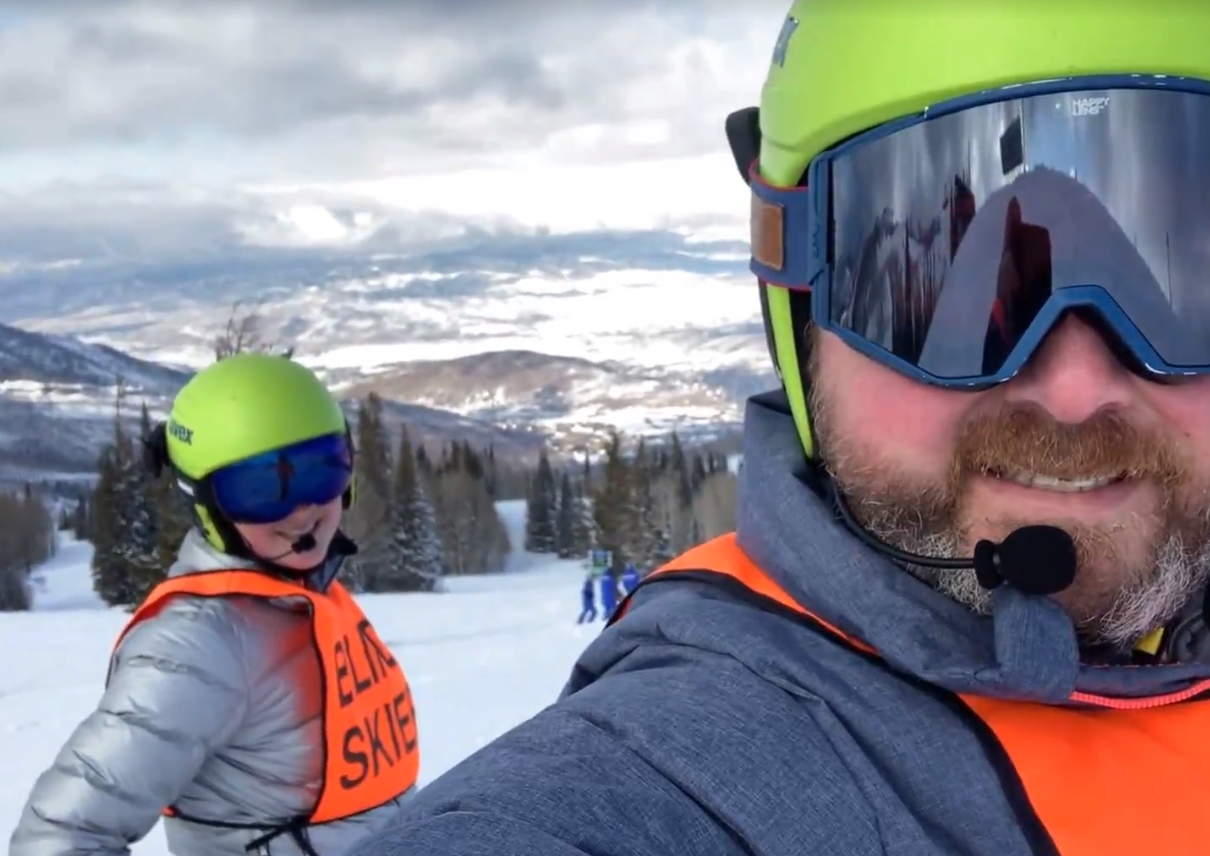
Abby and dad/guide, Chris, skiing at Park City, Utah
There is also less competition when you get to the higher levels of racing, especially as a blind racer. To get to the higher levels, there is not a process that has clear steps, you just end up fumbling around until you wind up at a national race and do it. Because of the lower numbers of blind people compared to abled bodied people, there is just less competition overall. Also, because it is not clear how to get to the level of or just get to higher level races there are likely lots of blind racers out there that just do not know how to get to higher level races. In America, other than me, there are maybe 5 blind female high-level ski racers and not all of us go to each race, so there is just less competition overall.
Every ski season is an improvement on the last
Most adaptive ski programs are not set up to train blind ski racers, and there are zero in New England that are. So through the end of the 2018-19 season I trained with a private coach (who is also blind) and my dad and raced at mountains like Mount Sunapee and with my high school ski team.
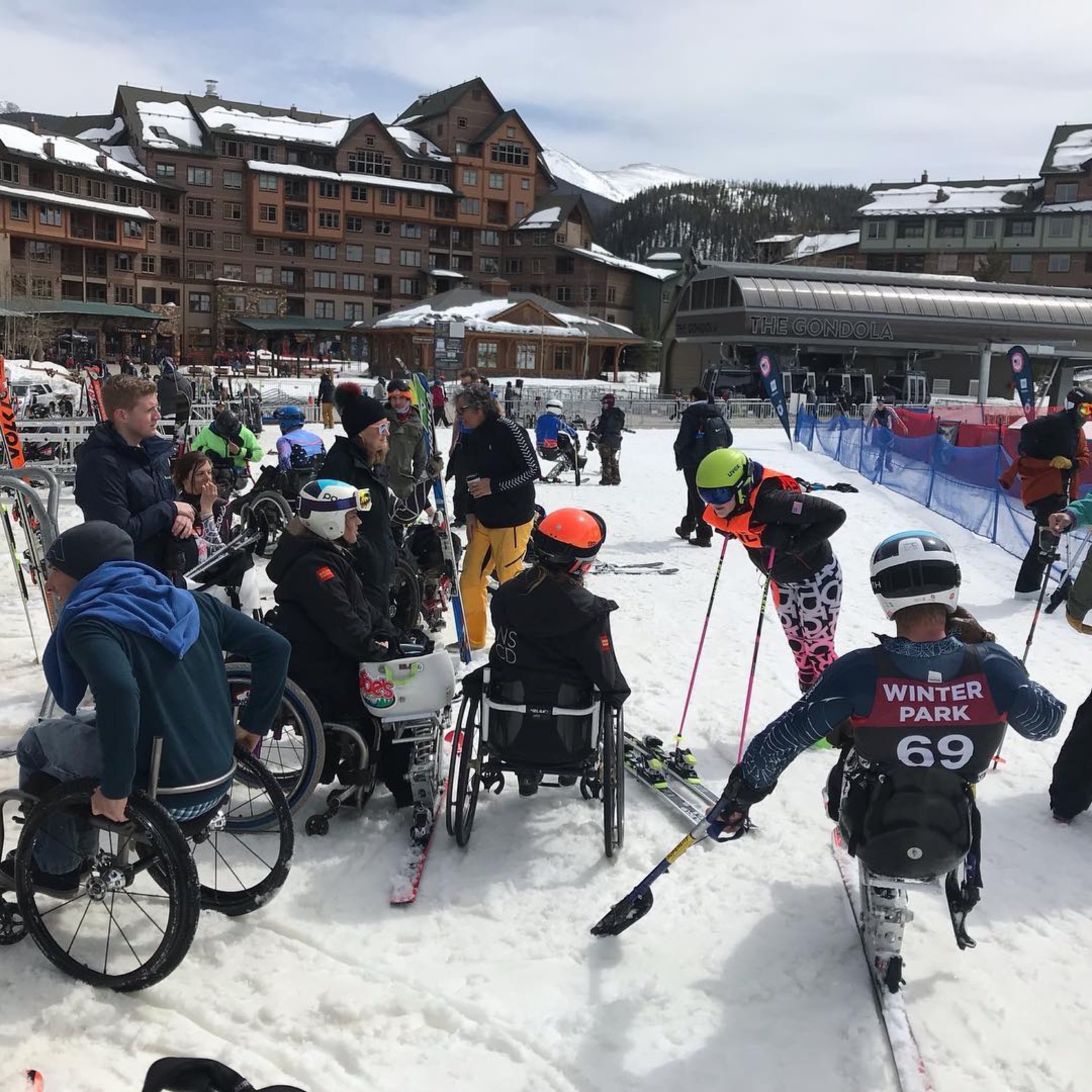
Abby Duffy at Alpine Adaptive Nationals – March 2019
Then, this past season (2019-20), I trained at the National Ability Center (NAC) in Park City, Utah. NAC is not just a national adaptive race team, they also have beginner ski lessons, and do stuff with a ton of different sports. I was a part of the High-Performance Team, which is their main alpine ski race team. People with all kinds of disabilities can be on the race team, from blind people like me, to people in wheelchairs or missing legs. The team all trains together and we go to races together. Every week from Monday to Friday there is training unless there is a race. This past season, because of school, I only trained in Park City for two weeks. But I did a ton of training in New Hampshire also.
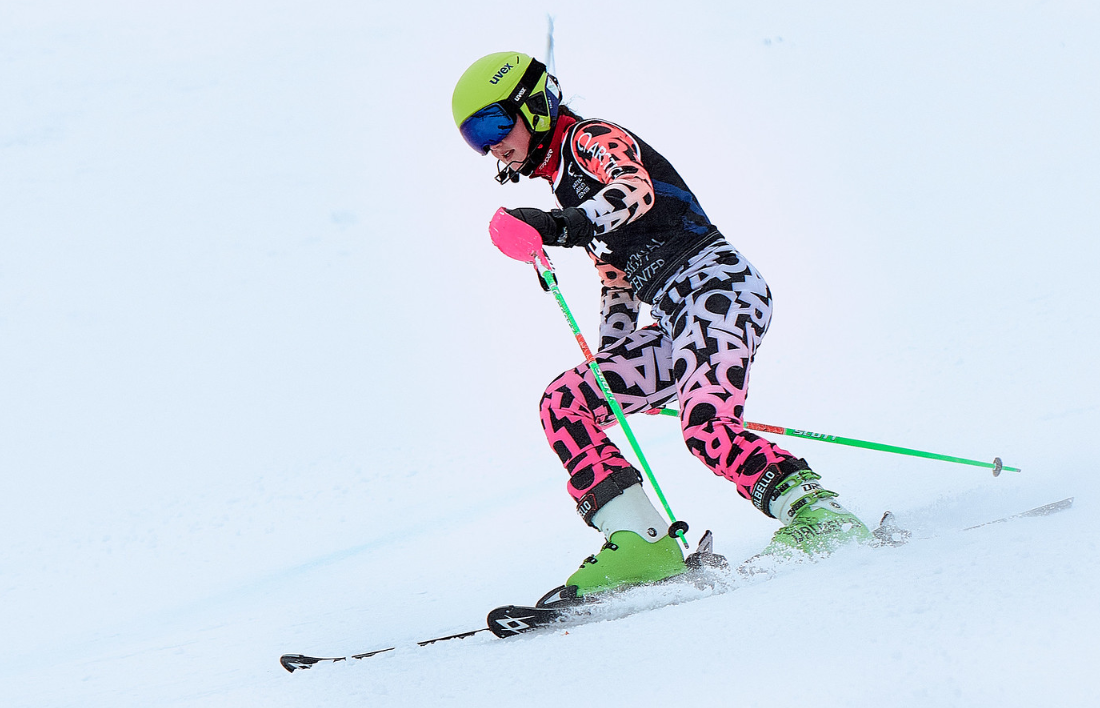
Abby Duffy ski racing
Able bodied alpine ski race coaches are not sure how to train a blind ski racing team and those same coaches are a bit intimidated to have the guide also be the racer’s dad. But thanks to the coaches and training at NAC, I got far more comfortable with the fundamentals that I have struggled with in the past. The coaches there helped me work through upper/lower body separation and hand placement to make me a better overall skier and racer as well as a lot of other factors of racing.
While training and racing with NAC this season I was able to meet Danelle Umstead, a visually impaired athlete who has medaled several Paralympic games and I have admired for a long time. It was great to meet someone who knows what I am going through and has experienced the same things. She is nice and answered a lot of questions which have helped my skiing greatly.
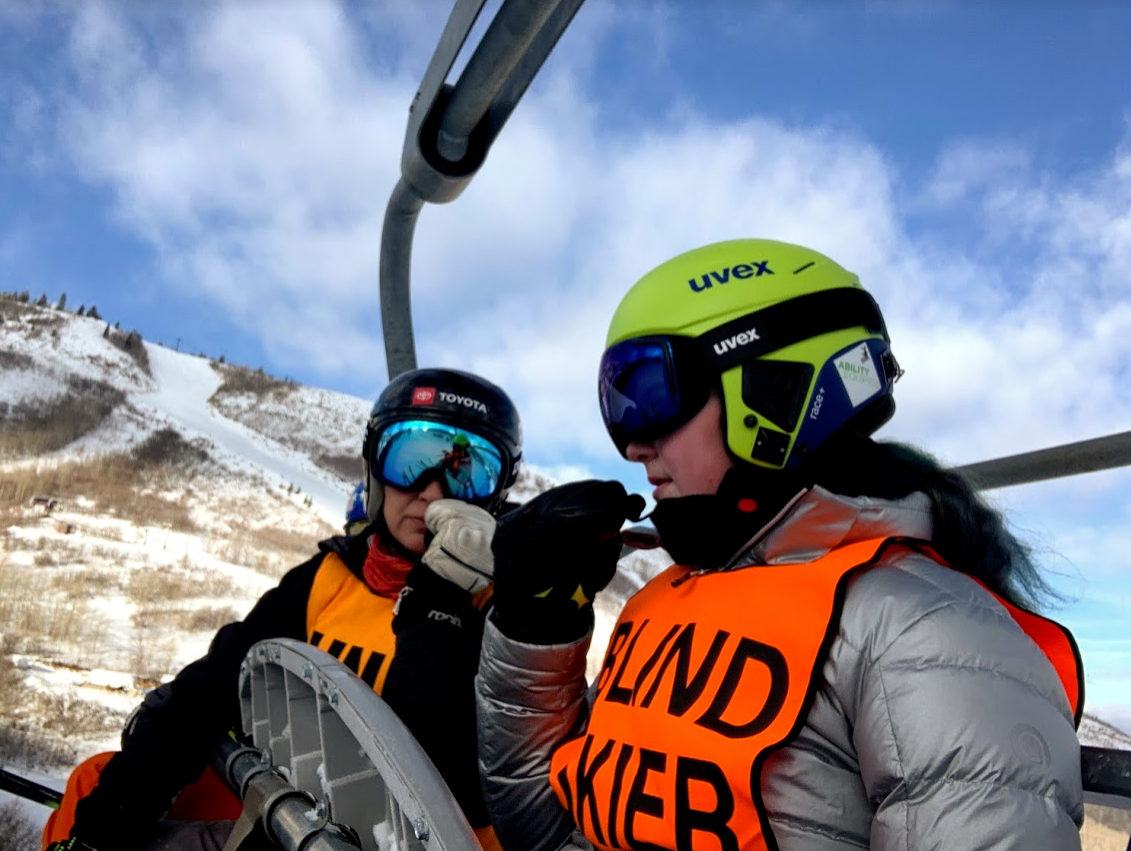
Abby Duffy On the chairlift in Park City with fellow blind ski racer, Danielle Umstead
My dad and I spend 50 or more days on snow each season training and racing. This past season I was on track to go to the National Para Alpine Championships at Winter Park in Colorado with very good chance to be on the podium. But sadly, thanks to COVID-19, the ski season was cut short and Nationals was cancelled. I did get one high level race in prior to the abrupt end of the season. I went to the Huntsman Cup. This is a race at my home race mountain, Park City in Utah. This is run by NAC every year and is a national level race. I am looking forward to returning to NAC for training and racing this season. Hopefully I will be able to proceed as planned!


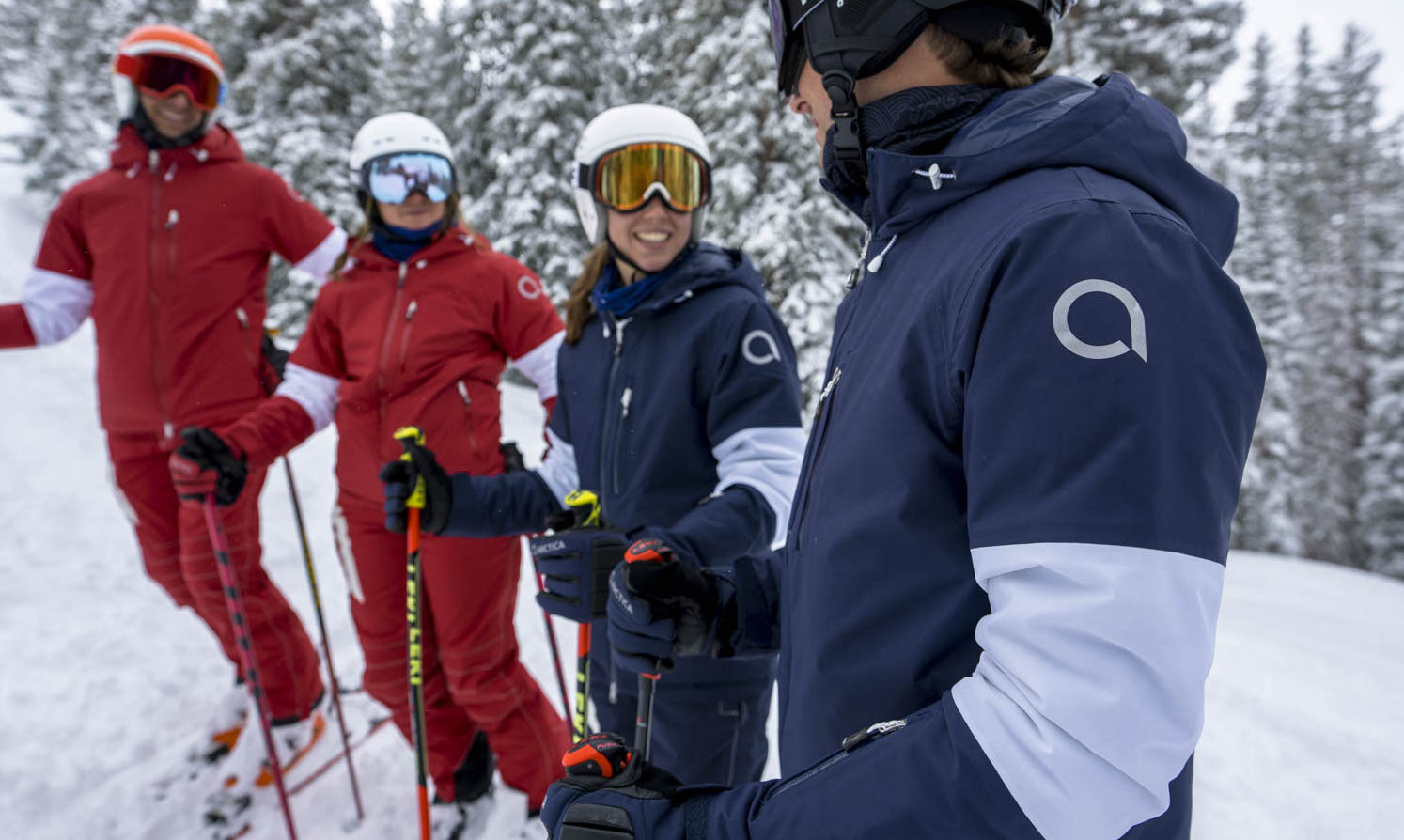
Great article and impressive skiing! Very motivating for me having increasing loss of vision over the last 4 years. Have always loved skiing but had quit due to vision. Now I’m going back next week with a guide!